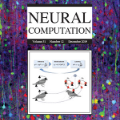Speech impairments due to cerebral lesions and degenerative disorders can be devastating. For humans with severe speech deficits, imagined speech in the brain-computer interface has been a promising hope for reconstructing the neural signals of speech production. However, studies in the EEG-based imagined speech domain still have some limitations due to high variability in spatial and temporal information and low signal-to-noise ratio. In this paper, we investigated the neural signals for two groups of native speakers with two tasks with different languages, English and Chinese. Our assumption was that English, a non-tonal and phonogram-based language, would have spectral differences in neural computation compared to Chinese, a tonal and ideogram-based language. The results showed the significant difference in the relative power spectral density between English and Chinese in specific frequency band groups. Also, the spatial evaluation of Chinese native speakers in the theta band was distinctive during the imagination task. Hence, this paper would suggest the key spectral and spatial information of word imagination with specialized language while decoding the neural signals of speech.
翻译:脑损伤和变性障碍导致的言语障碍可能具有毁灭性。对于严重言语缺陷的人来说,脑计算机界面中的想象语言是重建语音生成神经信号的一个充满希望的希望。然而,基于EEG的想象语言领域的研究由于空间和时间信息差异很大以及信号对噪音比率低,仍然有一些局限性。在本文中,我们研究了两种母语群体神经信号,他们有两种不同语言,即英语和中文的任务。我们的假设是英语,一种非tonal语和声波谱语言,在神经计算中与中文相比,具有光谱差异。结果显示,在特定频段组中,英语和中文的光谱密度差异很大。此外,在想象任务期间,对中方语带的中国本地语进行空间评估是独特的。因此,本文将提出与专门语言的词想象力有关的关键频谱和空间信息,同时分解语言的神经信号。




